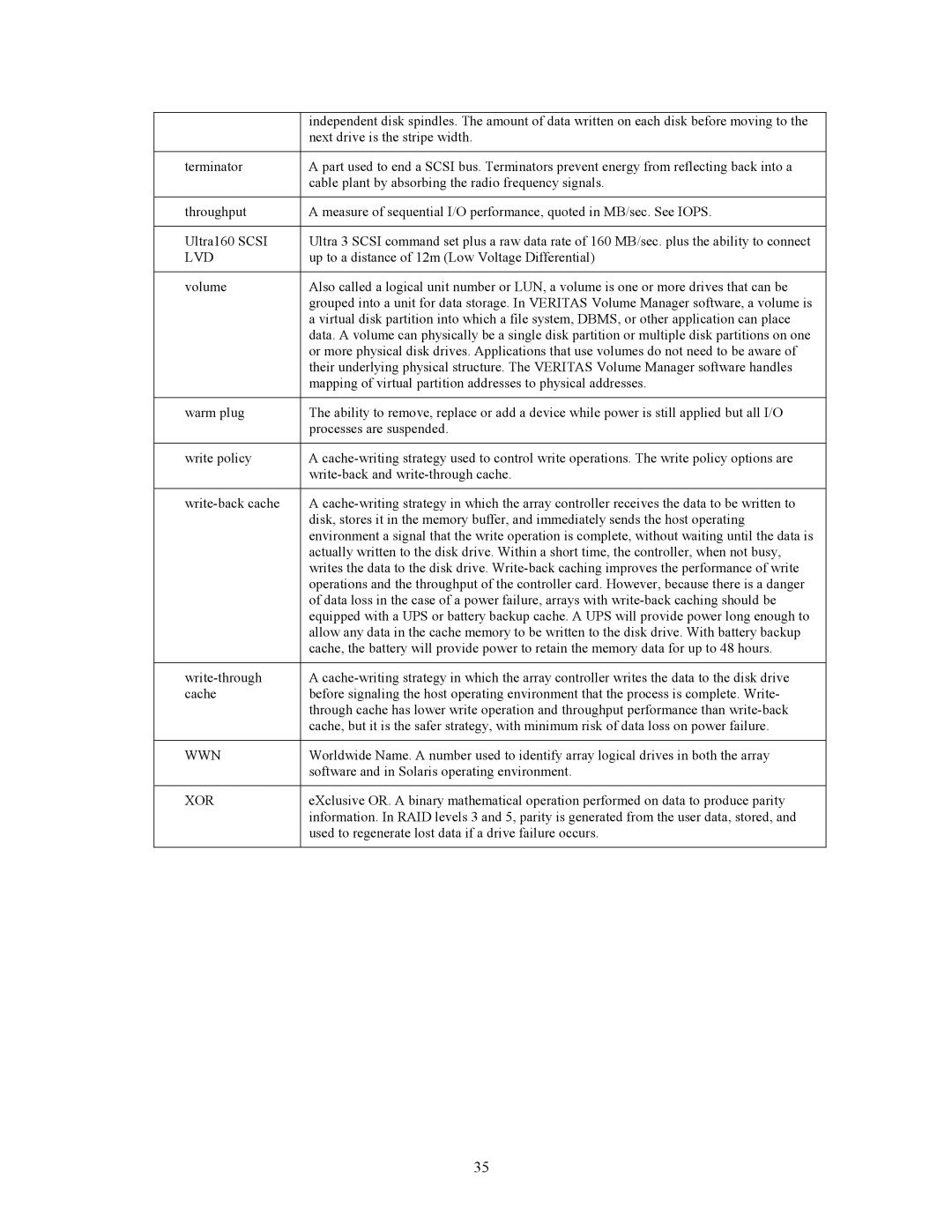| independent disk spindles. The amount of data written on each disk before moving to the |
| next drive is the stripe width. |
|
|
terminator | A part used to end a SCSI bus. Terminators prevent energy from reflecting back into a |
| cable plant by absorbing the radio frequency signals. |
|
|
throughput | A measure of sequential I/O performance, quoted in MB/sec. See IOPS. |
|
|
Ultra160 SCSI | Ultra 3 SCSI command set plus a raw data rate of 160 MB/sec. plus the ability to connect |
LVD | up to a distance of 12m (Low Voltage Differential) |
|
|
volume | Also called a logical unit number or LUN, a volume is one or more drives that can be |
| grouped into a unit for data storage. In VERITAS Volume Manager software, a volume is |
| a virtual disk partition into which a file system, DBMS, or other application can place |
| data. A volume can physically be a single disk partition or multiple disk partitions on one |
| or more physical disk drives. Applications that use volumes do not need to be aware of |
| their underlying physical structure. The VERITAS Volume Manager software handles |
| mapping of virtual partition addresses to physical addresses. |
|
|
warm plug | The ability to remove, replace or add a device while power is still applied but all I/O |
| processes are suspended. |
|
|
write policy | A |
| |
|
|
A | |
| disk, stores it in the memory buffer, and immediately sends the host operating |
| environment a signal that the write operation is complete, without waiting until the data is |
| actually written to the disk drive. Within a short time, the controller, when not busy, |
| writes the data to the disk drive. |
| operations and the throughput of the controller card. However, because there is a danger |
| of data loss in the case of a power failure, arrays with |
| equipped with a UPS or battery backup cache. A UPS will provide power long enough to |
| allow any data in the cache memory to be written to the disk drive. With battery backup |
| cache, the battery will provide power to retain the memory data for up to 48 hours. |
|
|
A | |
cache | before signaling the host operating environment that the process is complete. Write- |
| through cache has lower write operation and throughput performance than |
| cache, but it is the safer strategy, with minimum risk of data loss on power failure. |
|
|
WWN | Worldwide Name. A number used to identify array logical drives in both the array |
| software and in Solaris operating environment. |
|
|
XOR | eXclusive OR. A binary mathematical operation performed on data to produce parity |
| information. In RAID levels 3 and 5, parity is generated from the user data, stored, and |
| used to regenerate lost data if a drive failure occurs. |
|
|
35
